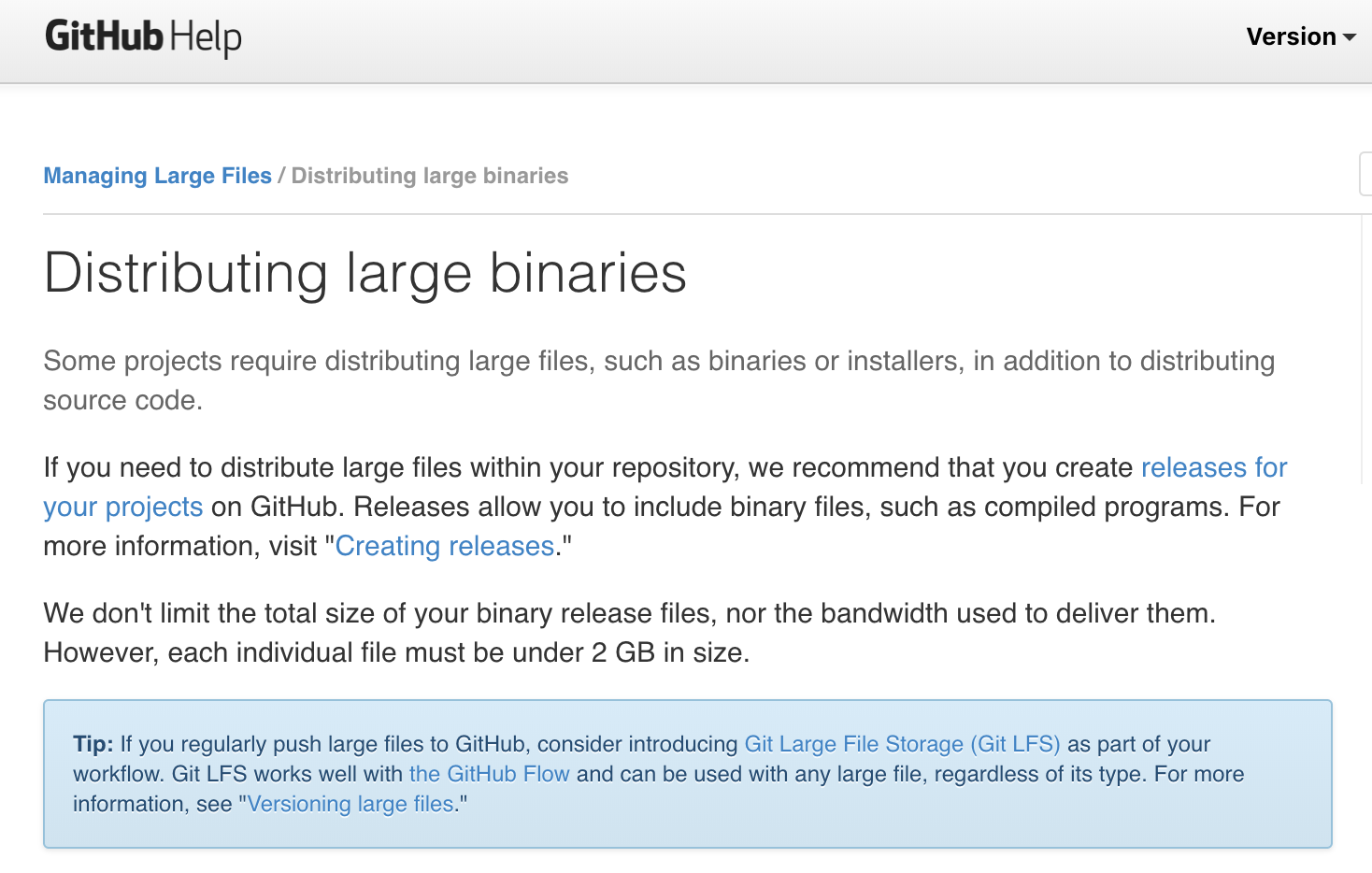Because larger (> 50 MB) data files cannot easily be committed to git, a different approach is required to manage data associated with an analysis in a GitHub repository. This package provides a simple work-around by allowing larger (up to 2 GB per file) data files to piggyback on a repository as assets attached to individual GitHub releases. These files are not handled by git in any way, but instead are uploaded, downloaded, or edited directly by calls through the GitHub API. These data files can be versioned manually by creating different releases. This approach works equally well with public or private repositories. Data can be uploaded and downloaded programmatically from scripts. No authentication is required to download data from public repositories.
Install from CRAN via
install.packages("piggyback")You can install the development version from GitHub with:
# install.packages("devtools")
devtools::install_github("ropensci/piggyback")See the piggyback vignette for details on authentication and additional package functionality.
Piggyback can download data attached to a release on any repository:
library(piggyback)
pb_download("data/mtcars.tsv.gz", repo = "cboettig/piggyback-tests", dest = tempdir())Downloading from private repos or uploading to any repo requires
authentication, so be sure to set a GITHUB_TOKEN (or GITHUB_PAT)
environmental variable, or include the .token argument. Omit the file
name to download all attached objects. Omit the repository name to
default to the current repository. See introductory
vignette or
function documentation for details.
We can also upload data to any existing release (defaults to latest):
## We'll need some example data first.
## Pro tip: compress your tabular data to save space & speed upload/downloads
readr::write_tsv(mtcars, "mtcars.tsv.gz")
pb_upload("mtcars.tsv.gz", repo = "cboettig/piggyback-tests")For a Git LFS style workflow, just
specify the type of files you wish to track using pb_track().
Piggyback will retain a record of these files in a hidden
.pbattributes file in your repository, and add these to .gitignore
so you don’t accidentally commit them to GitHub. pb_track will also
return a list of such files that you can easily pass to pb_upload():
# track csv files, compressed data, and geotiff files:
pb_track(c("*.csv", "*.gz", "*.tif")) %>%
pb_upload()You can easily download the latest version of all data attached to a
given release with pb_download() with no file argument (analogous to a
git pull for data):
pb_download()piggyback acts like a poor soul’s Git
LFS. Git LFS is not only expensive, it
also breaks GitHub’s collaborative
model
– basically if someone wants to submit a PR with a simple edit to your
docs, they cannot fork your repository since that would otherwise count
against your Git LFS storage. Unlike Git LFS, piggyback doesn’t take
over your standard git client, it just perches comfortably on the
shoulders of your existing GitHub API. Data can be versioned by
piggyback, but relative to git LFS versioning is less strict:
uploads can be set as a new version or allowed to overwrite previously
uploaded data.
GitHub documentation at the time of writing endorses the use of attachments to releases as a solution for distributing large files as part of your project:
Of course, it will be up to GitHub to decide if this use of release attachments is acceptable in the long term.
Also see our vignette comparing alternatives.
Please note that this project is released with a Contributor Code of Conduct. By participating in this project you agree to abide by its terms.


